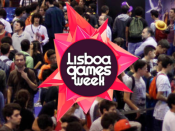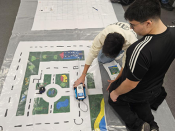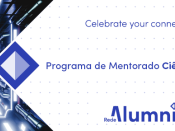Por Tim Loher (International Pacific Halibut Commission).
Pacific halibut (Hippoglossus stenolepis) support one of the most economically-important fisheries in the eastern North Pacific Ocean, with average landed values of ~135 million Euros per year. Still, large fluctuations in total abundance over the last 50 years – including a recent 10-year decline that may have been the largest in the history of the fishery – highlight the need to better understand the species’ life history. In particular, Pacific halibut are relatively long-lived (i.e., may live to 50 years or more) and have great potential to disperse over the course of their lifetimes. Individual movements of more than 5000 km have been observed in juveniles, and adults migrate seasonally between nearshore feeding grounds and offshore spawning sites. For a fishery that is managed both regionally and seasonally, these movements can alter the degree to which various fishing sectors affect one another and the potential for management decisions to have unintended results. Here, the dispersal of Pacific halibut at various temporal and spatial scales – investigated using a variety of research methods – will be discussed, and related to the management concerns that they most-directly affect.
Tim Loher received a BS in Biology (with minors in Chemistry and Secondary Education) in 1987 from the State University of New York at Geneseo; an MS in Marine Biology from Northeastern University (Boston) in 1992; and a PhD in Fisheries from the University of Washington (UW) in 2001. Over the course of his career, he has conducted field research on a variety of taxa – from sessile benthic invertebrates, to mobile crustaceans, and benthic and epibenthic fishes – in ecosystems that range from tropical coral reefs to subartic, and from estuarine to offshore submarine pinnacle habitat. At the UW, his work focused on interactions between environmental forcing, early life history, and population function of eastern Bering Sea red king crab. Since 1991 he has worked at the International Pacific Halibut Commission, where he has been responsible for designing and implementing an integrated research program to better understand Pacific halibut behavior, life history, and population function, and to foster collaboration between the IPHC and academic researchers. The result has been numerous publications on Pacific halibut biology in collaboration with researchers from the UW, Oregon State University, the University of Alaska-Fairbanks, and Woods Hole Oceanographic Institution (USA); as well as Atlantic halibut research with researchers at the Memorial University of Newfoundland and the Canadian Department of Fisheries and Oceans.






















